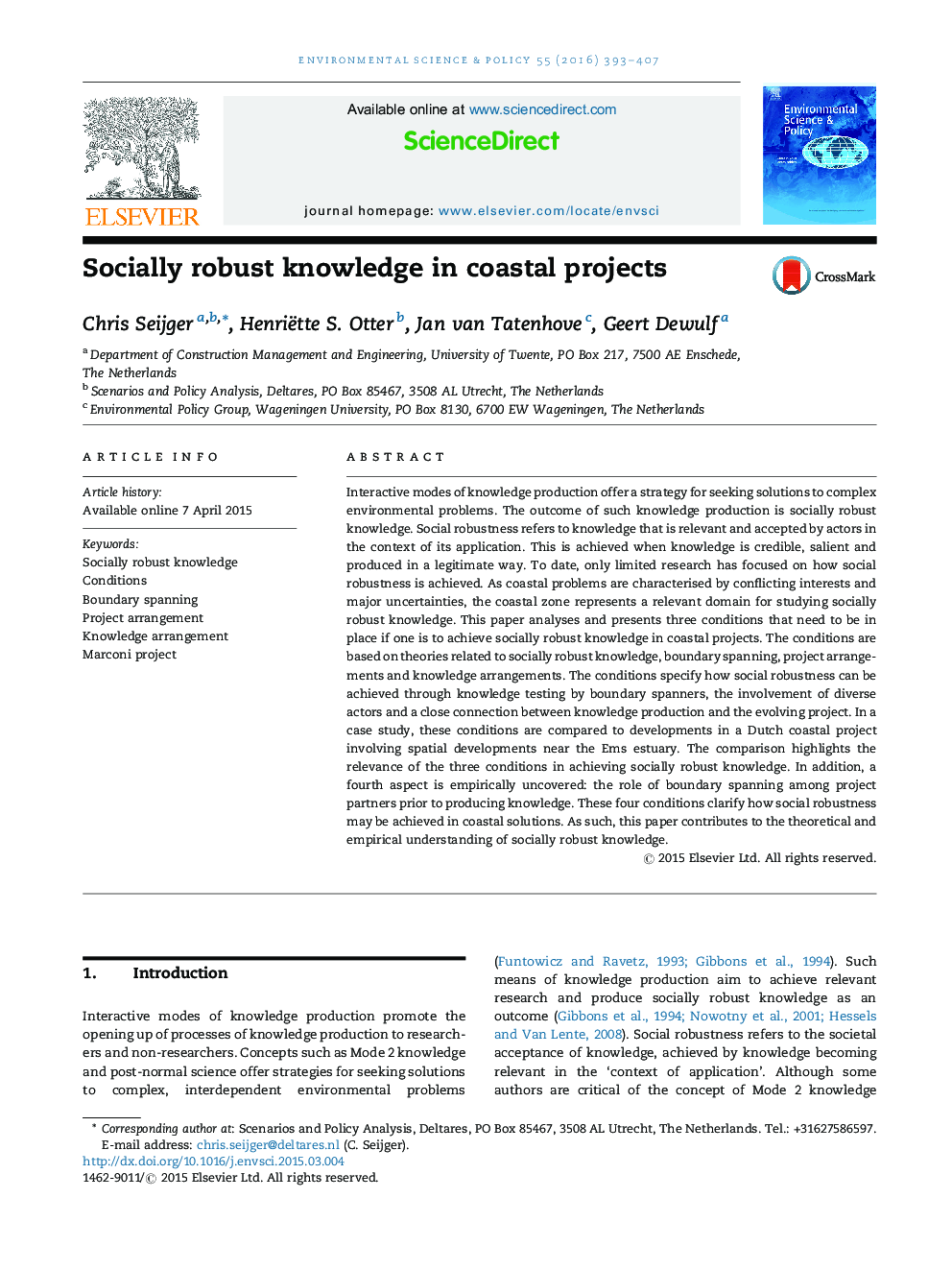| کد مقاله | کد نشریه | سال انتشار | مقاله انگلیسی | نسخه تمام متن |
|---|---|---|---|---|
| 1053437 | 946678 | 2016 | 15 صفحه PDF | دانلود رایگان |
• Responding to complex environmental problems requires socially robust knowledge.
• This refers to knowledge that is accepted by actors in the context of application.
• Three theoretical conditions are presented on how social robustness may be achieved.
• The conditions are compared to developments in a Dutch coastal project.
• The comparison emphasises the relevance of the three theoretical conditions.
Interactive modes of knowledge production offer a strategy for seeking solutions to complex environmental problems. The outcome of such knowledge production is socially robust knowledge. Social robustness refers to knowledge that is relevant and accepted by actors in the context of its application. This is achieved when knowledge is credible, salient and produced in a legitimate way. To date, only limited research has focused on how social robustness is achieved. As coastal problems are characterised by conflicting interests and major uncertainties, the coastal zone represents a relevant domain for studying socially robust knowledge. This paper analyses and presents three conditions that need to be in place if one is to achieve socially robust knowledge in coastal projects. The conditions are based on theories related to socially robust knowledge, boundary spanning, project arrangements and knowledge arrangements. The conditions specify how social robustness can be achieved through knowledge testing by boundary spanners, the involvement of diverse actors and a close connection between knowledge production and the evolving project. In a case study, these conditions are compared to developments in a Dutch coastal project involving spatial developments near the Ems estuary. The comparison highlights the relevance of the three conditions in achieving socially robust knowledge. In addition, a fourth aspect is empirically uncovered: the role of boundary spanning among project partners prior to producing knowledge. These four conditions clarify how social robustness may be achieved in coastal solutions. As such, this paper contributes to the theoretical and empirical understanding of socially robust knowledge.
Journal: Environmental Science & Policy - Volume 55, Part 3, January 2016, Pages 393–407
